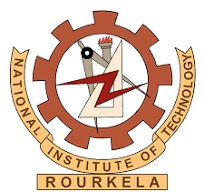A research team at the National Institute of Technology (NIT), Rourkela, has developed a groundbreaking natural bio-ink designed to revolutionize bone repair and regeneration. This innovative solution, recently patented, provides a promising alternative to conventional bone grafting techniques.
The Science Behind the Bio-Ink
Led by Prof. Devendra Verma from the Department of Biotechnology and Medical Engineering, the team has formulated a biocompatible ink-like material that supports new bone formation through 3D printing. The bio-ink consists of natural components, including chitosan, gelatin, and nanohydroxyapatite, ensuring its compatibility with human tissues.
Unique Properties and Advantages
One of the key features of this bio-ink is its ability to remain liquid at room temperature and solidify into a gel when exposed to body temperature and pH levels. This property allows for direct application at injury sites, eliminating the need for pre-cultivation in laboratories.
According to Prof. Verma, this innovation addresses several drawbacks of traditional bone grafting methods. These include pain, limited availability, and the risk of rejection. Additionally, it offers significant advantages over metal implants, which often struggle to integrate with natural bone structures.
Recognition and Future Applications
The research findings have been published in the journals Biomaterials Science and Carbohydrate Polymers. Research scholars Tanmay Bharadwaj and Shreya Chrungoo co-authored the study, and the team received a patent for the technology on March 18.
As reported by TOI, the Department of Health Research (DHR), Government of India, has supported this project. It recognizes the bio-ink’s potential for reconstructive surgeries, particularly for skull and facial bone repairs where precision is crucial.
Startup and Future Plans
To advance this innovation toward clinical applications, the researchers have launched a startup, Quixotix Bioprinting Pvt Ltd. Their next steps include conducting animal trials and developing a scalable production process that adheres to good manufacturing practices.
This bio-ink marks a significant advancement in medical technology, promising improved outcomes for patients requiring bone reconstruction procedures.
























